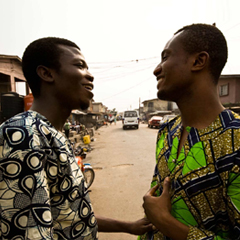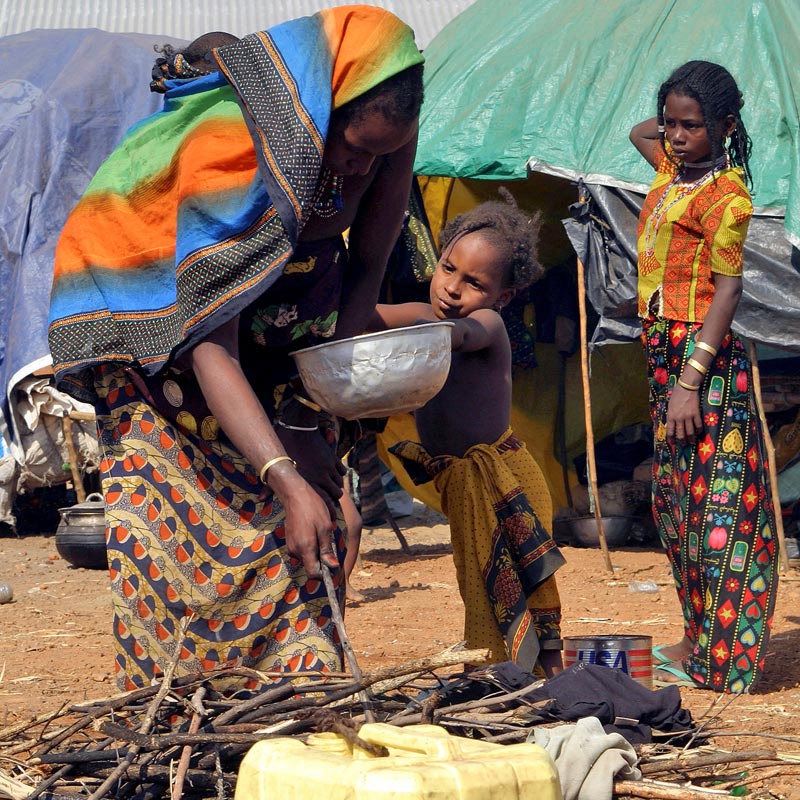-
Grants
9
-
Total Awarded
$3,142,167
-
Years
2008 - 2021
-
Categories
Grants
Established in 2004, the Socio-Economic Rights and Accountability Project (SERAP) is one of Nigeria’s foremost accountability nonprofit organizations. SERAP is committed to promoting human rights, transparency, and accountability in governance through training, advocacy, research, and strategic litigation. The previous award to SERAP supported transparency and accountability in the management of public resources. This final award allows SERAP to deepen, consolidate, and institutionalize its anti-corruption and accountability work. SERAP supports freedom of information requests on asset recovery, public procurement, and constituency projects, and is conducting a detailed analysis of the Auditor General’s reports on federal appropriations to ministries, departments, and agencies. SERAP is also undertaking public interest litigation on the information gathered on asset recovery and procurement practices as appropriate, and translating reports into short, accessible formats for easier understanding. This award also supports SERAP to advocate for the Supreme Court to overturn its decision on section 396(7) of the Administration of Criminal Justice Act (ACJA), which was nullified due to its inconsistency with the Nigerian constitution. The award is expected to strengthen transparency, promote accountability, and reduce corruption in Nigeria.
Socio-Economic Rights and Accountability Project (SERAP) is a nonprofit, nonpartisan, legal and advocacy organization committed to promoting human rights, transparency, and accountability in governance, using training, advocacy, research, and strategic litigation. SERAP proposes to track and report on the use of COVID-19-designated funds, resources and palliatives at all levels of government in Nigeria to ensure accountability and transparency.
The Socio-Economic Rights and Accountability Project (SERAP) is a Nigerian non-profit promoting socio-economic rights, transparency and accountability in Nigeria. A longstanding grantee and partner of the Foundation, it uses public education, research, advocacy, public petition and public interest litigation to mobilize citizens’ involvement in rights protection and promotion, call out corruption in private and public sectors and hold service providers, government and regulators to account. This award supports SERAP to review performance and achievement of Nigeria’s first National Action Plan under the Open Government Partnership to inform advocacy and improve impact of a second action plan. The open government partnership is an international collaborative involving government and civil society for promoting participation, inclusion, transparency, accountability and good governance. SERAP works with civic actors to monitor OGP national action plan and advocate accountability in Nigeria.
Established in 2004, the Socio-Economic Rights and Accountability Project (SERAP) promotes human rights, transparency, and accountability in governance, using training, advocacy, research, and strategic litigation. It is one of Nigeria’s foremost accountability organizations and a long-time grantee of the Foundation. With this award, SERAP is strengthening its anti-corruption and accountability work by continuing to document corruption cases by state- and non-state actors in the education and electricity sectors and other areas; ensuring compliance with an annual submission of audited reports of federal appropriations by ministries, departments, and agencies to the Auditor General of the Federation as provided in the Constitution; using media to educate and mobilize citizens on the cost of corruption on their daily lives; sensitizing the public to the importance of compliance with the Administration of Criminal Justice Act to improve prosecution of high-profile cases; and utilizing public interest litigation as a strategy to reduce retail and grand corruption and increase citizens’ participation in the demand for accountability.
The Socio-Economic Rights and Accountability Project (SERAP) is a Nigerian non-profit promoting socio-economic rights, transparency and accountability in Nigeria. A longstanding grantee and partner of the Foundation, it uses public education, research, advocacy, public petition and public interest litigation to mobilize citizens’ involvement in rights protection and promotion, call out corruption in private and public sectors and hold service providers, government and regulators to account. This award supports three SERAP’s staffers to the 2019 summit of Open Government Partnership; a multi-stakeholder initiative for openness, inclusion, transparency and accountability in public sector. The conference draws participants from government, development partners, civil society, media, academia and researchers to share knowledge, learning, and co-create new approaches for openness, transparency, accountability. SERAP’s participation improves capacity of key staff, networking and contributions to accountability through OGP in Nigeria.
The Socio-Economic Rights and Accountability Project (SERAP) is a Nigerian nonprofit established in 2004 to promote human rights, transparency, and accountability in governance, using training, strategic litigation, and advocacy. With this award SERAP is documenting, exposing, and litigating corruption cases in the education and electricity sectors among others. It is also campaigning and advocating for implementation of remedial actions for curbing corruption in the sectors, and mobilizing and supporting media activism for transparency and accountability. The project is expected to improve transparency and accountability in both priority sectors and more generally. This award is part of a larger package of complementary awards that is expected to increase transparency in education finances in select states, improve accountability in the electricity sector, strengthen local accountability practices, and contribute to a reduction in corruption.
The grant to Socio-Economic Rights and Accountability Project (SERAP) will support the implementation of Nigeria’s Freedom of Information Act of 2011 through the filing of cases, training workshops for lawyers and judges, and a compendium of jurisprudence on FOI cases.
To conduct strategic litigation before national, sub-regional, and regional courts (over three years).
In support of activities to generate new strategies to document and litigate internationally recognized economic, social, and cultural rights before national and regional courts (over two years).





